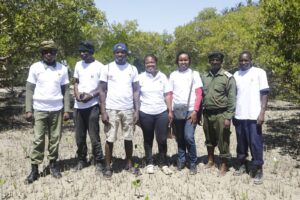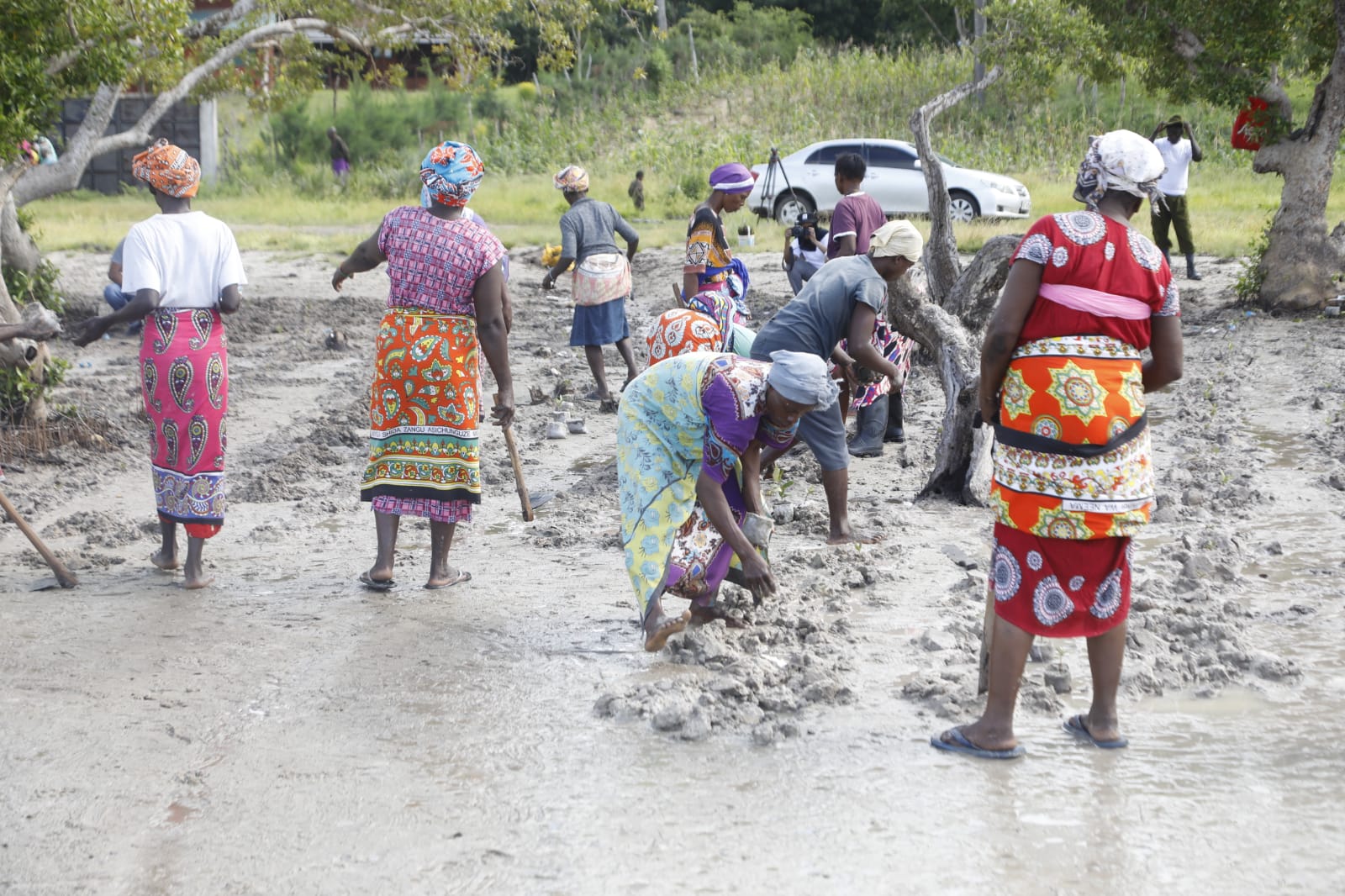Fifty percent of the world’s mangroves have been wiped out in the last 50 years due to human activity.
This is according to a report by the World Wildlife Fund (WWF) which warns that the remaining mangrove cover could be lost in just 100 years.
To avert the situation, community lead activism to restore over 300 hectares of mangrove forest is gaining momentum through the Triple Benefit Program by WWF.
Janet Tatu Katana, from Uyombo sub creek conservation group, says with a membership of 26 women, they have been empowered to conserve mangrove forests from destructors and restoration of the already depleted zones.
She notes that the conservation of mangroves has highly supported their bee keeping project after realizing the importance of harnessing mangroves honey which is quite sustainable.
However, illegal destruction by loggers and fishermen who dig beneath the mangrove to extract fishing worms remains a significant challenge.
Silas Tsuma, Kilifi County Forester says communities play a vital role in conservation. He highlights that the the initiatives contribute to the restoration and conservation of the mangroves as well as creation of income generating activities such as eco-tourism ventures through capacity building of women’s groups in mangrove nurseries.
WWF’s training and engagement empowers communities to take environment action initiatives, contributing to blue economy projects and carbon credit, with mangrove restoration being a major focus.
Rose Machaku, WWF project officer, says mangrove forest sites continue to face a number of threats including unsustainable use of mangrove resources where illegal logging for building materials and fire wood has been on the rise.
WWF is working with key stakeholder to restore degraded mangrove forest sites in Coastal Kenya while ensuring that communities benefit from these resources.
Collaborative efforts are ongoing to protect, conserve and restore the mangrove ecosystem within Mida Greek, targeting 300 hectares by 2025.
WWF’s Triple Two Benefit Project leads Mangrove Restoration and Community empowerment, strengthening social-ecological resilience, reducing disaster risk, and improving health, food, and water security for coastal communities.
As World Mangrove Day approaches on July 26, WWF anticipates continued restoration of vital coastal habitats and empowerment of local communities, fostering a healthier, more resilient natural environment for future generations.






